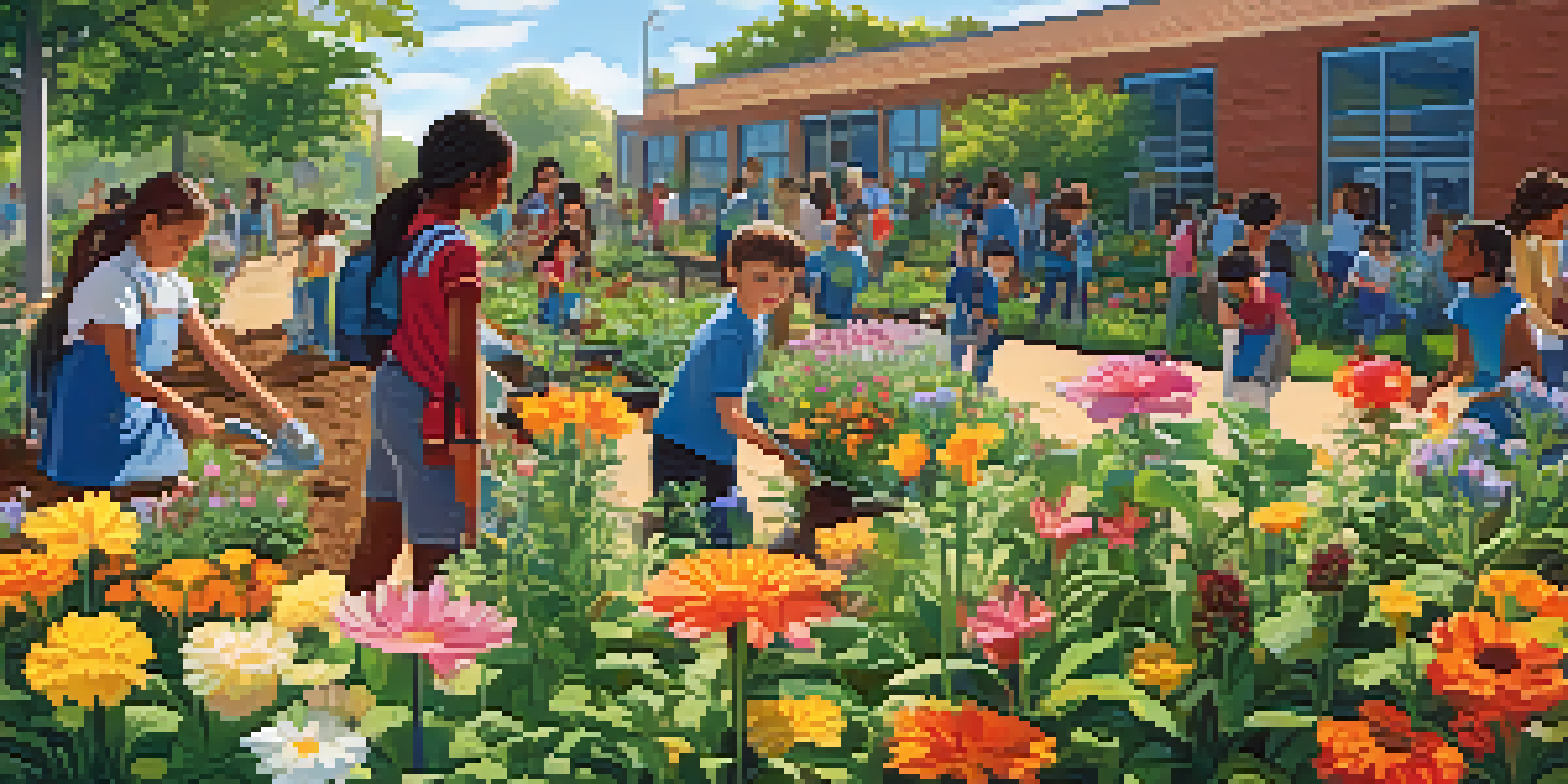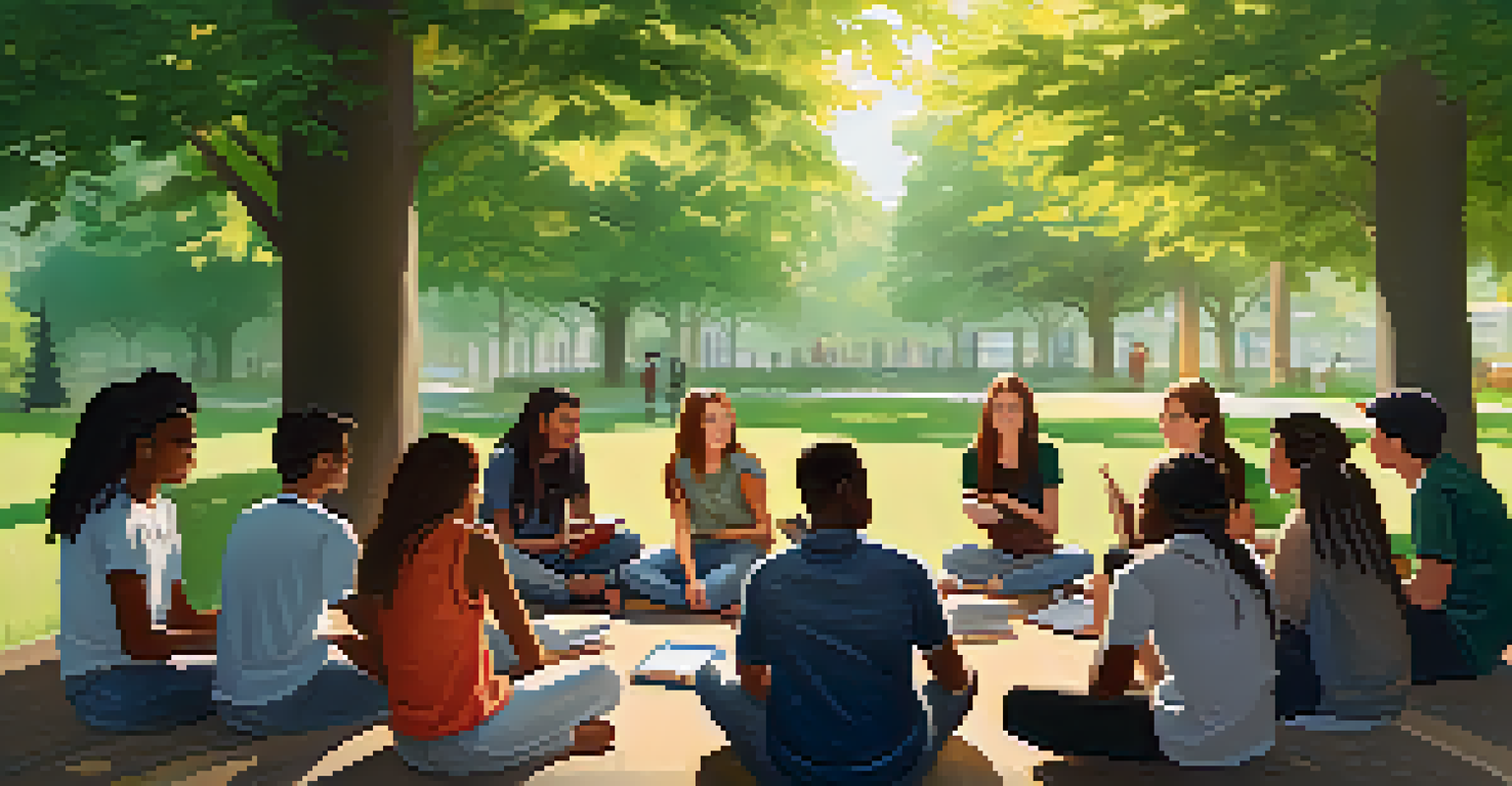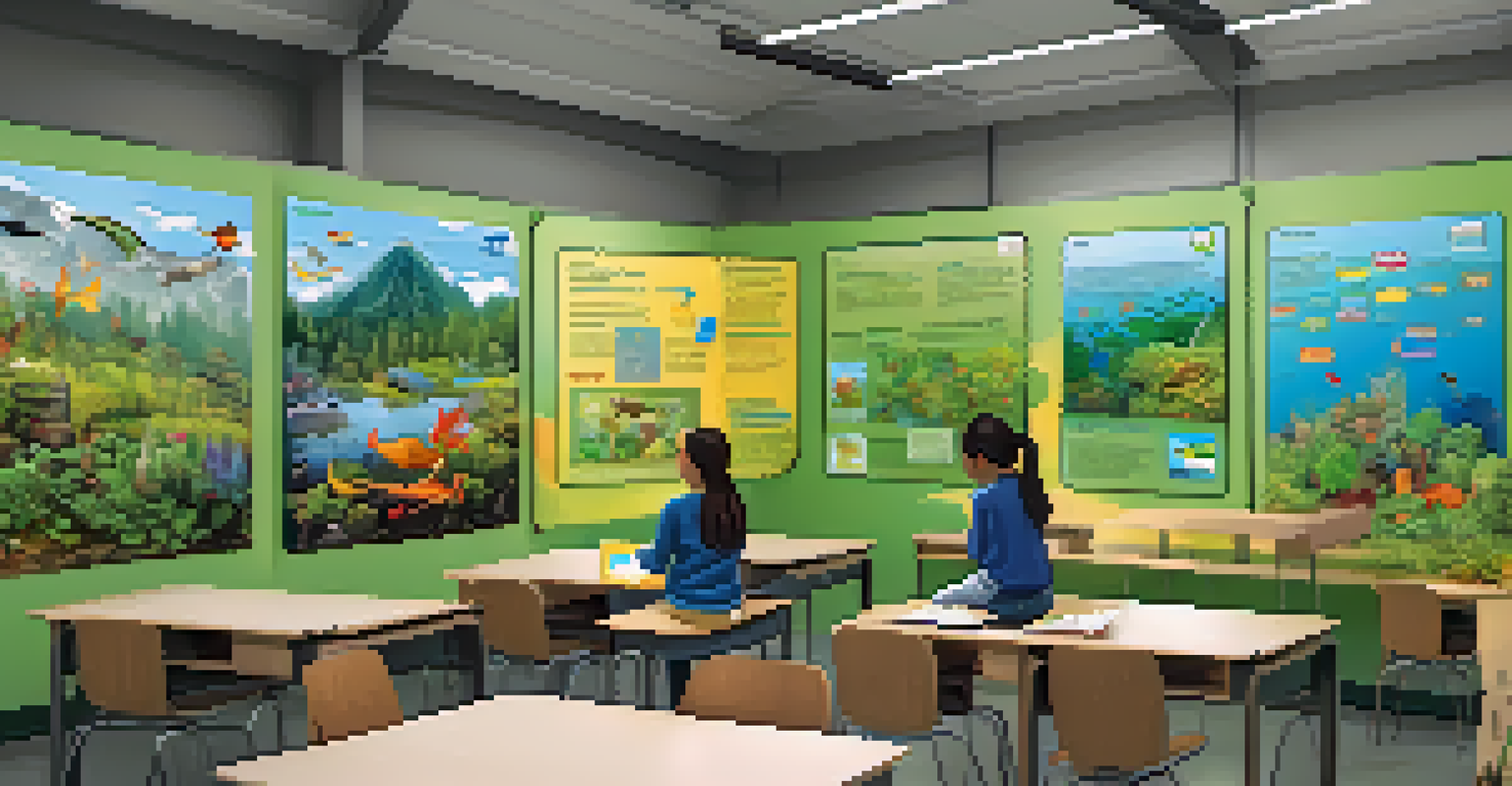The Impact of Eco-Literacy on Student Learning Outcomes

Understanding Eco-Literacy and Its Importance
Eco-literacy refers to the understanding of ecological principles and the interconnectedness of natural systems. It encompasses not just knowledge about the environment but also the skills to engage in sustainable practices. By fostering eco-literacy, we can empower students to think critically about their roles in the ecosystem and society.
The greatest threat to our planet is the belief that someone else will save it.
In today’s world, where environmental issues are increasingly pressing, eco-literacy has become essential. Students equipped with eco-literacy are more likely to engage in positive environmental behaviors, such as recycling and conservation. This foundational knowledge prepares them to tackle real-world challenges related to climate change and resource management.
Encouraging eco-literacy in education can lead to a generation of informed citizens who are proactive in creating sustainable solutions. Schools that prioritize eco-literacy contribute not only to student learning outcomes but also to the larger goal of environmental stewardship in society.
The Role of Eco-Literacy in Critical Thinking
Eco-literacy promotes critical thinking by challenging students to analyze environmental issues from multiple perspectives. For instance, when discussing renewable energy, students must consider economic, social, and ecological factors. This holistic approach encourages deeper understanding and more nuanced discussions.

By engaging with complex environmental topics, students learn to evaluate evidence, question assumptions, and develop their own viewpoints. This skill set is invaluable, as it prepares them for future academic pursuits and career paths that require analytical thinking. Ultimately, eco-literacy fosters a mindset of inquiry and problem-solving.
Eco-Literacy Empowers Environmental Action
Fostering eco-literacy equips students with the knowledge and skills necessary to engage in sustainable practices and address environmental challenges.
Moreover, critical thinking developed through eco-literacy can lead to innovative solutions to pressing environmental problems. Students who think critically about sustainability are more likely to contribute to meaningful change, whether through community projects or future career initiatives.
Enhancing Engagement Through Hands-On Learning
Hands-on learning experiences, such as garden projects or field studies, play a crucial role in building eco-literacy. When students actively participate in environmental activities, they develop a personal connection to nature and sustainability. This practical approach transforms abstract concepts into tangible experiences.
We do not inherit the earth from our ancestors, we borrow it from our children.
For example, planting a school garden not only teaches students about ecosystems but also fosters teamwork and responsibility. They learn the importance of nurturing plants, which parallels the care we need to show for our planet. These experiences create lasting memories and reinforce the lessons learned in the classroom.
Engagement through hands-on learning also promotes retention of knowledge. Students are more likely to remember concepts that they have physically interacted with, ensuring that eco-literacy becomes an integral part of their education.
Developing Collaboration and Communication Skills
Eco-literacy encourages collaboration among students as they work on group projects related to environmental issues. Whether it’s conducting research or organizing conservation efforts, teamwork is essential. These collaborative experiences help students learn how to communicate effectively with diverse groups.
Through such projects, students practice sharing ideas, listening to others, and resolving conflicts. These are critical skills that extend beyond the classroom, preparing students for future workplaces that value teamwork and communication. Eco-literacy, therefore, not only fosters environmental awareness but also essential soft skills.
Critical Thinking Through Eco-Literacy
Eco-literacy enhances critical thinking by encouraging students to analyze environmental issues from multiple perspectives and develop innovative solutions.
Moreover, when students collaborate on eco-centric initiatives, they often find a sense of community and shared purpose. This camaraderie enhances their learning experience and instills a sense of responsibility towards both their peers and the environment.
Integrating Eco-Literacy Across Curricula
Integrating eco-literacy across various subjects can enhance its impact on student learning outcomes. For instance, science classes can explore ecosystems, while history lessons can delve into the impact of industrialization on the environment. This interdisciplinary approach reinforces the importance of ecological knowledge in multiple contexts.
When eco-literacy is woven into different subjects, students see its relevance in their daily lives. It helps them make connections between what they learn in the classroom and real-world environmental challenges. This relevance boosts their motivation to engage with the material and fosters a more profound understanding of the subject matter.
Furthermore, an integrated curriculum encourages teachers to collaborate and share resources, creating a richer learning environment. Students benefit from varied perspectives and teaching styles, ultimately enhancing their overall educational experience.
Measuring the Impact of Eco-Literacy on Learning Outcomes
Measuring the effectiveness of eco-literacy initiatives is crucial for understanding their impact on student learning outcomes. Educators can use assessments, surveys, and observational methods to gauge students' knowledge and attitudes toward environmental issues. This data helps inform future teaching strategies.
For example, pre- and post-program surveys can reveal shifts in students' understanding of sustainability concepts. By analyzing these results, educators can identify areas of improvement and success, allowing them to refine their eco-literacy programs. This continuous feedback loop ensures that educational practices remain relevant and effective.
Hands-On Learning Enhances Engagement
Hands-on learning experiences, such as gardening and field studies, create personal connections to nature, making eco-literacy concepts more memorable and impactful.
Additionally, sharing these outcomes with the broader school community can inspire further engagement and support for eco-literacy initiatives. Educators, parents, and community members can collaborate to create a culture of sustainability that benefits students and the environment alike.
The Future of Eco-Literacy in Education
As awareness of environmental issues grows, the future of eco-literacy in education looks promising. Schools are increasingly recognizing the importance of preparing students to be environmentally responsible citizens. This shift indicates a growing commitment to integrating eco-literacy into educational frameworks.
With advancements in technology, educational tools and resources for teaching eco-literacy are becoming more accessible. Virtual field trips, interactive simulations, and online courses provide exciting opportunities for students to engage with environmental topics. These innovations can enhance traditional teaching methods and reach a broader audience.

Ultimately, the future of eco-literacy in education is about fostering a generation that values sustainability and takes action. By prioritizing eco-literacy, we can empower students to become informed advocates for the planet, ensuring a healthier environment for future generations.